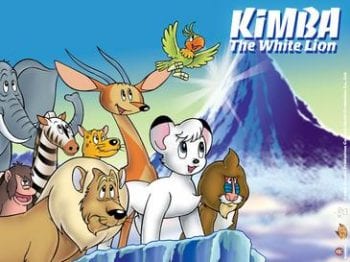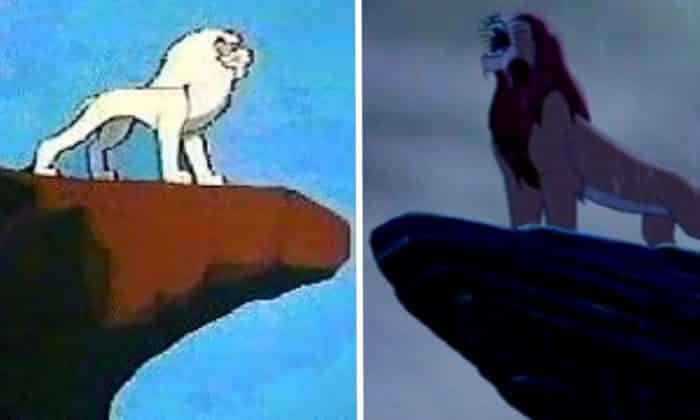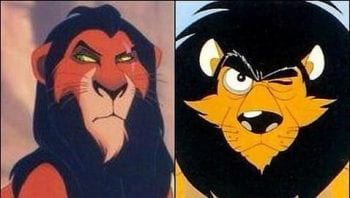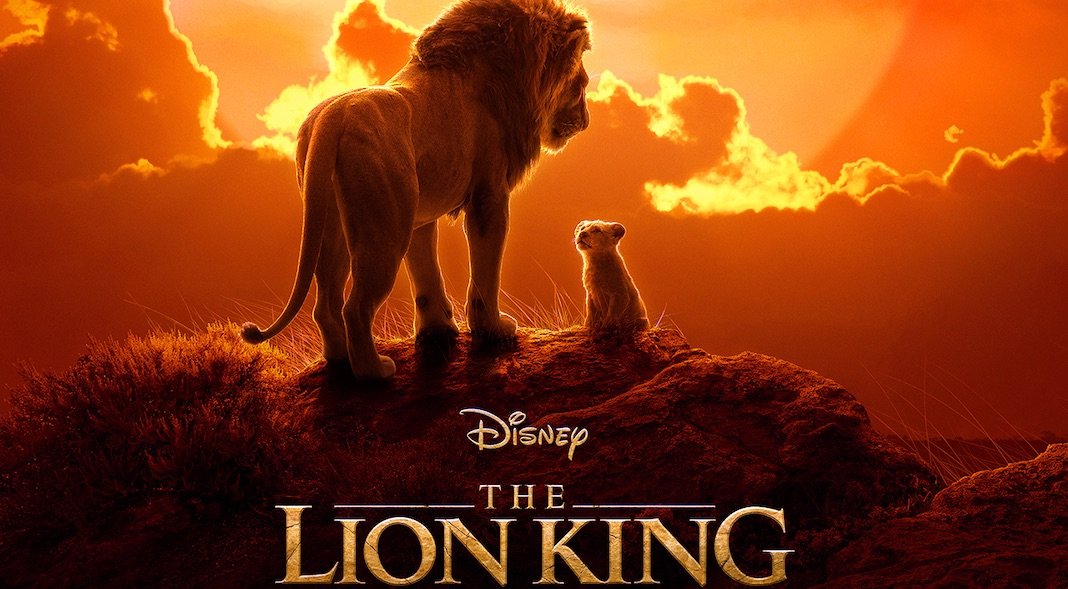Is The Lion King a Plagiarism?
The lion doesn't sleep tonight...

On July 19, Disney is set to release its remake of its 1994 hit movie The Lion King. Made with photorealistic animation techniques and featuring all-star cast, it looks to be another Disney remake in the same vein as The Jungle Book, Dumbo and others.
But while all of the Disney remakes have had their own controversies, including many questioning if they extended Disney’s copyright (Spoiler: They don’t), The Lion King comes with its own unique controversy: Allegations of plagiarism.
In short, at the same time that Disney is digging up nostalgia for its new movie, it’s also resurrecting 25-year-old allegations that the original film was a plagiarism of an earlier Japanese work.
But is it? That’s a question that’s nearly impossible to answer definitively, especially when you’re looking at a 25-year-old work where most of the work was done in relative secret. We don’t really have documents that we can compare and instead we’re limited to looking at the end products and the statements made by those involved. That’s not a lot to go on.
Still, we’re going to take a deep dive into the allegations of plagiarism and look at what most likely took place.
An Overview of the Allegations

The allegations compare The Lion King to a Japanese manga and anime entitled Kimba The White Lion.
Kimba was crated by famed Japanese artist Osamu Tezuka, who is sometimes referred to as the Walt Disney of Japan. He was responsible for the creation of multiple famous mangas including, most notable to US audience, Astro Boy.
The Kimba manga first appeared in 1950 and ran through 1954. After that it was made into an animated series that originally ran from 1965-1967. Kimba, the character, the manga and the anime are all extremely popular in Japan, even today and have seen several resurrections.
Kimba is the story of a white lion cub whose father is king of the jungle. But, after his father is murdered and he is kidnapped and eventually becomes lost at sea. He, through a long journey, finds his way home only to find an evil lion name Claw, who is missing an eye and has hyena henchmen, has taken over his kingdom. They fight and Kimba eventually wins.

The Lion King began production in 1989, the same year as Tezuka’s death, and was released in 1994. It features the plot of Simba, a lion whose father that is king of jungle. However, when his father is killed by his uncle, a lion with a damaged eye named Scar, Simba flees but, after a lengthy journey, decides to return reclaim his kingdom by battling Scar and his hyena sidekicks
Already many of the similarities between the two works area apparent but there are many other artistic similarities that have been called out over time.
Those similarities include, but are not limited to:
- The image of Simba/Kimba standing on a protruding rock
- Both characters see their deceased parents in the sky and get guidance from them
- A wise baboon character
- Similar bird companion characters
- Hyena sidekicks that are also comic relief
- Comedic warthog characters
- The theme of the circle of life
- The image of the villain trying to throw the hero off a cliff only to be reversed
Many of these similarities, as well as some others, have been summarized in a video by YouTube Alli Kat, which you can find below.
All in all, the list of similarities is pretty lengthy and, on the surface, seems compelling. However, there are also a lot of differences to consider as well as the question of whether plagiarism as possible at all.
Disney’s Side

Though the controversy went largely unnoticed in the United States, where Kimba is relatively unknown, the similarities were definitely noticed in Japan, where he remains a favorite character even today.
When confronted with the similarities, Disney steadfastly proclaimed that it had never heard of Kimba the White Lion. Both co-directors of The Lion King, Rob Minkoff and Roger Allers, said that they had never heard of Kimba until after the controversy began. However, that beggars belief for a variety of reasons.
First, Allers worked as an animator in Japan in the 1980s, at a time where a new Kimba anime was airing in prime time. Second, Tezuka produced a licensed manga for Disney’s Bambi in 1951 as well as an unlicensed manga of Pinocchio in 1952. This was during the run of the original Kimba manga.
Disney, as a company, was almost certainly aware of his work and it’s almost impossible to believe that no one working on The Lion King had seen Kimba and noticed the similarities. This is bolstered by Matthew Broderick, the voice for Simba, who claimed that, when he took the role, he assumed he was doing the voice for Kimba and even told others he was.
Furthermore, Roy Disney accidentally referred to Simba as Kimba in an interview before the film’s release.
While that doesn’t necessarily prove plagiarism, it does make it far, far less likely that those behind The Lion King were not at ;east aware of Kimba.
But, as we continue to look at the similarities, many of them are easily explained. For example, the Kimba/Simba similarity is simple enough. Simba is the Swahili word for “lion” making it a natural choice. Kimba’s name in the Japanese versions is “Leo”, but they were forced to change that in English versions due to the MGM lion using the name. According to one book, Simba was nearly chosen for the same reason as in The Lion King but it was changed to Kimba.
Other similarities can be explained simply by them being stock elements for a story about animals in Africa. Hyenas are literally known for their laughing, making them a natural choice for comic relief, and many of the same animals will be used as characters.
To make matters more complicated, while the two films do have a lot in common, they also have major differences. The plots between the two movies are very different. Kimba focuses on a conflict between animals and humans where The Lion King has no humans at all. Also, The Lion King has a much more serious tone and style. It keeps the characters much more animal-like. Meanwhile, Kimba is much more comical in style and anthropomorphizes its characters much more.
The two works are very different both in plot and tone, but still have many artistic similarities and other overlapping elements. But is it plagiarism? That’s a difficult question to answer.
The Core Question
This leaves open the core question and the title of this article: Is The Lion King a plagiarism?
The coincidences are difficult to ignore. With one or even a handful of them it would be easy to wave them off as stories with similar protagonists in a similar setting having similar elements. However, the list is really long to write off as pure coincidence.
Couple that with Disney’s insistence that they were completely unaware of Kimba despite overwhelming evidence that they company was or at least should have been aware, damages their case.
If Disney had simply said, “Yes, of course we were inspired by Tezuka but wanted to create our own story,” it’s likely that Tezuka, a huge Disney fan, would have been more honored than upset.
However, Disney really couldn’t admit that. As the Allie Kat video highlights, Disney’s promotion for The Lion King hinged heavily on the idea of it being Disney’s first original story. While the story was indeed original, or at least borrowed from Hamlet, it doesn’t mean every visual, character or even plot point was.
But Disney, because of its marketing (and possibly out of fear of a lawsuit), couldn’t really acknowledge that.
This combined with the fact that Disney legal threats put an end to a planned North American release of Jungle Emperor Leo, a Kimba film that began production in 1988 but was release in 1997, Disney does not come away looking like the good guy.
And that may well be the biggest heartbreak here: Tezuka truly loved Disney
He professed to having seen Bambi more than 80 times during the postwar years of Japan and one of the reasons he started the Kimba manga was to offer his own exploration and commentary on the film’s themes.
While I don’t believe that Disney set out to rip off Tezuka, they ended up denying him both the credit he deserves and the chance to have his work reach a broader audience.
Even if we can’t definitely prove plagiarism, we can certainly show that it is probable and that, if nothing else, Disney’s actions after the fact had the impact of plagiarism on Tezuka’s work.
Bottom Line
To me, the most likely explanation is not outright plagiarism, but something more benign, at least to begin with.
If I’m to speculate (and this is PURE speculation), I believe that the original idea for The Lion King was indeed to do an adaptation of Kimba. At that time, Disney was still very big on adaptations and there was a mutual respect between Disney and Tezuka.
When Tezuka died in 1989, those potential plans got derailed. However, since the movie wasn’t very far along, Disney opted to do their own story and, though the movie changed a great deal, many of the artistic elements remained in the film. However, when Disney realized that it was their first film that wasn’t an outright adaptation, they leaned on that for the marketing.
That then created the problem where they couldn’t mention Tezuka or the inspiration he provided and basically tried to deny they’d ever heard of him, even though there’s almost no way they hadn’t.
This meshes well with a statement by animator Tom Sito, who told HuffPost Entertainment, “I mean the artists working on the film, if they grew up in the ’60s, they probably saw Kimba I mean, I watched Kimba when I was a kid in the ’60s, and I think in the recesses of my memory we’re aware of it, but I don’t think anybody consciously thought, ‘Let’s rip off Kimba.'”
In short, they were aware, they did remember Kimba and were inspired, but didn’t seek to rip it off. Elements from Kimba made it into The Lion King, either as holdovers from an early vision that never even began production or just through the creative process. Either way, those influences couldn’t be acknowledged.
Disney probably didn’t set out to plagiarize or rip off Tezuka, but the marketing (and potentially legal fears) made it impossible to acknowledge the inspiration.
As I said, that is all speculation, but it fits everything we know about the creation of The Lion King and it puts Disney in the most favorable light that I possibly can on this story.
Want to Reuse or Republish this Content?
If you want to feature this article in your site, classroom or elsewhere, just let us know! We usually grant permission within 24 hours.
